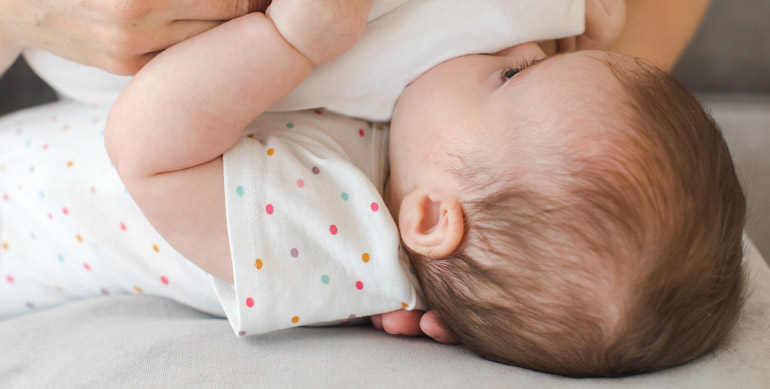
Breastfeeding protects newborns from getting sick and also helps protect them throughout their infancy and childhood. Breastfeeding is particularly effective against infectious diseases because it strengthens the immune system by directly transferring antibodies from the mother. As with all confirmed or suspected COVID-19 cases, mothers with any symptoms who are breastfeeding or practicing skin-to-skin contact should take precautions.
Actions for breastfeeding mothers
Practice respiratory hygiene, including during feeding. If you have respiratory symptoms such as being short of breath, use a medical mask when near your child.
Wash your hands thoroughly with soap or sanitizer before and after contact with your child.
Routinely clean and disinfect any surfaces you touch.
If you are severely ill with COVID-19 or suffer from other complications that prevent you from caring for your infant or continuing direct breastfeeding, express milk to safely provide breastmilk to your infant.
If you are too unwell to breastfeed or express breastmilk, you should explore the possibility of relactation (restarting breastfeeding after a gap), wet nursing (another woman breastfeeding or caring for your child), or using donor human milk. Which approach to use will depend on cultural context, acceptability to you, and service availability.
Actions for health facilities and their staff
If you are providing maternity and newborn services, you should not promote breastmilk substitutes, feeding bottles, teats, pacifiers or dummies in any part of your facilities, or by any of your staff.
Enable mothers and infants to remain together and practice skin-to-skin contact, and rooming-in throughout the day and night, especially straight after birth during establishment of breastfeeding, whether or not the mother or child has suspected, probable, or confirmed COVID-19.
Counselling and psychosocial support
If you, your infants, or young children have suspected or confirmed COVID-19, seek breastfeeding counselling, basic psychosocial support, or practical feeding support. You may get support from appropriately trained health care professionals and also community-based lay and peer breastfeeding counsellors.
Standard infant feeding guidelines
Initiate breastfeeding within 1 hour of the birth.
Continue exclusive breastfeeding for 6 months, then introduce adequate and safe complementary foods at age 6 months.
Continue breastfeeding up to 2 years of age or beyond.
Flyer, infographic and social cards
Flyer on breastfeeding advice during the COVID-19 outbreak (Arabic)
Infographic on breastfeeding during COVID-19 (Arabic)
Social cards on breastfeeding and COVID-19 (Arabic)


